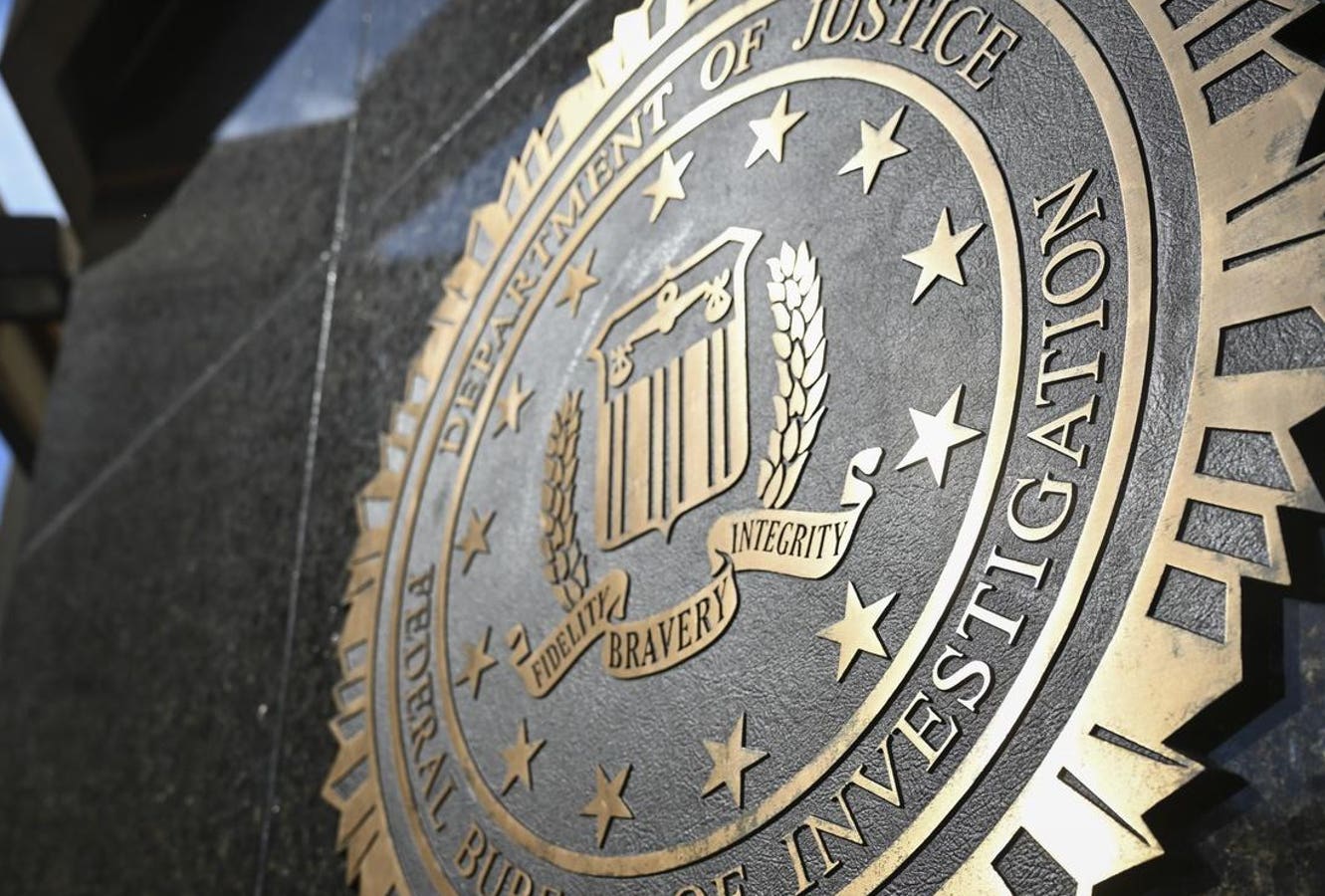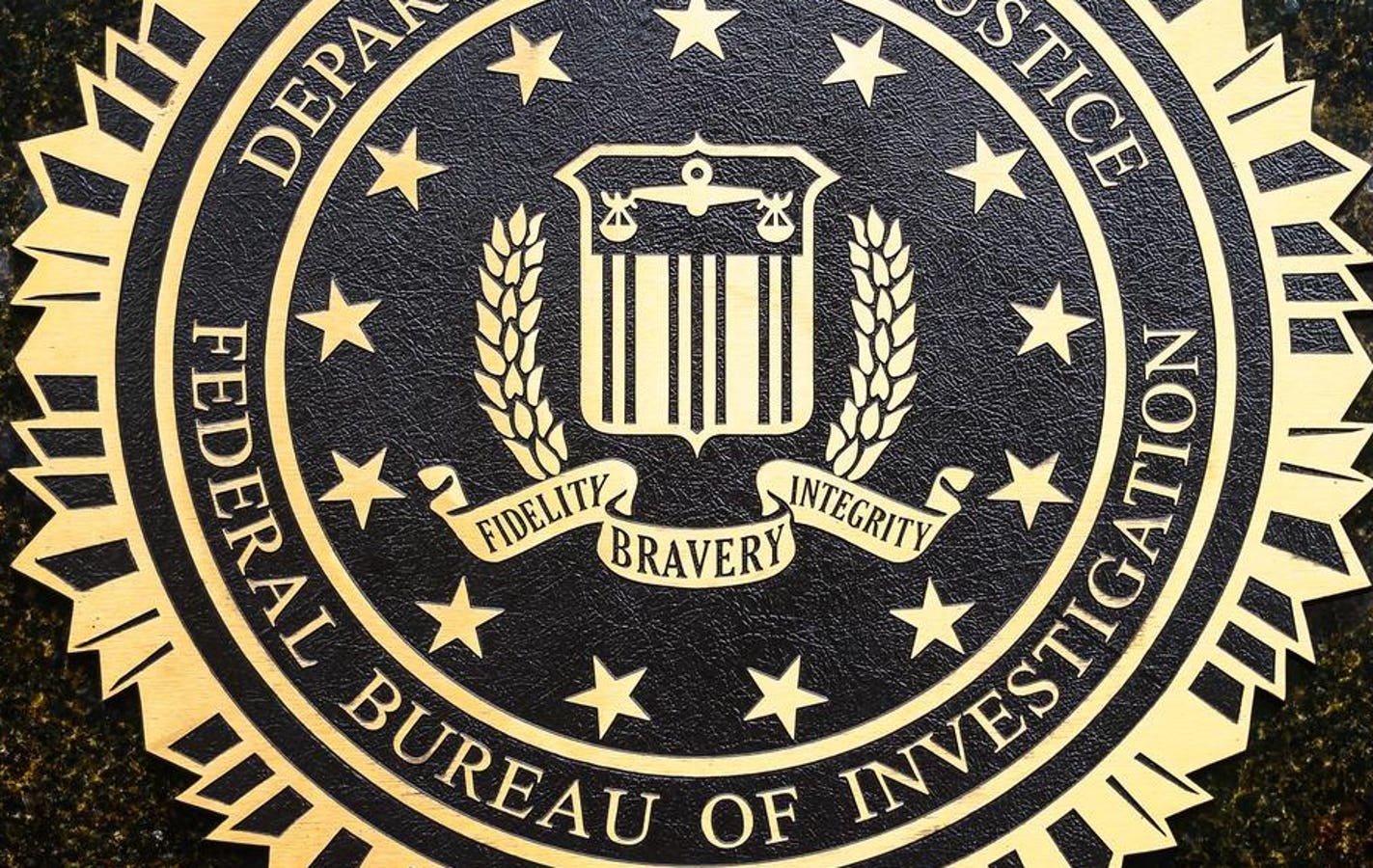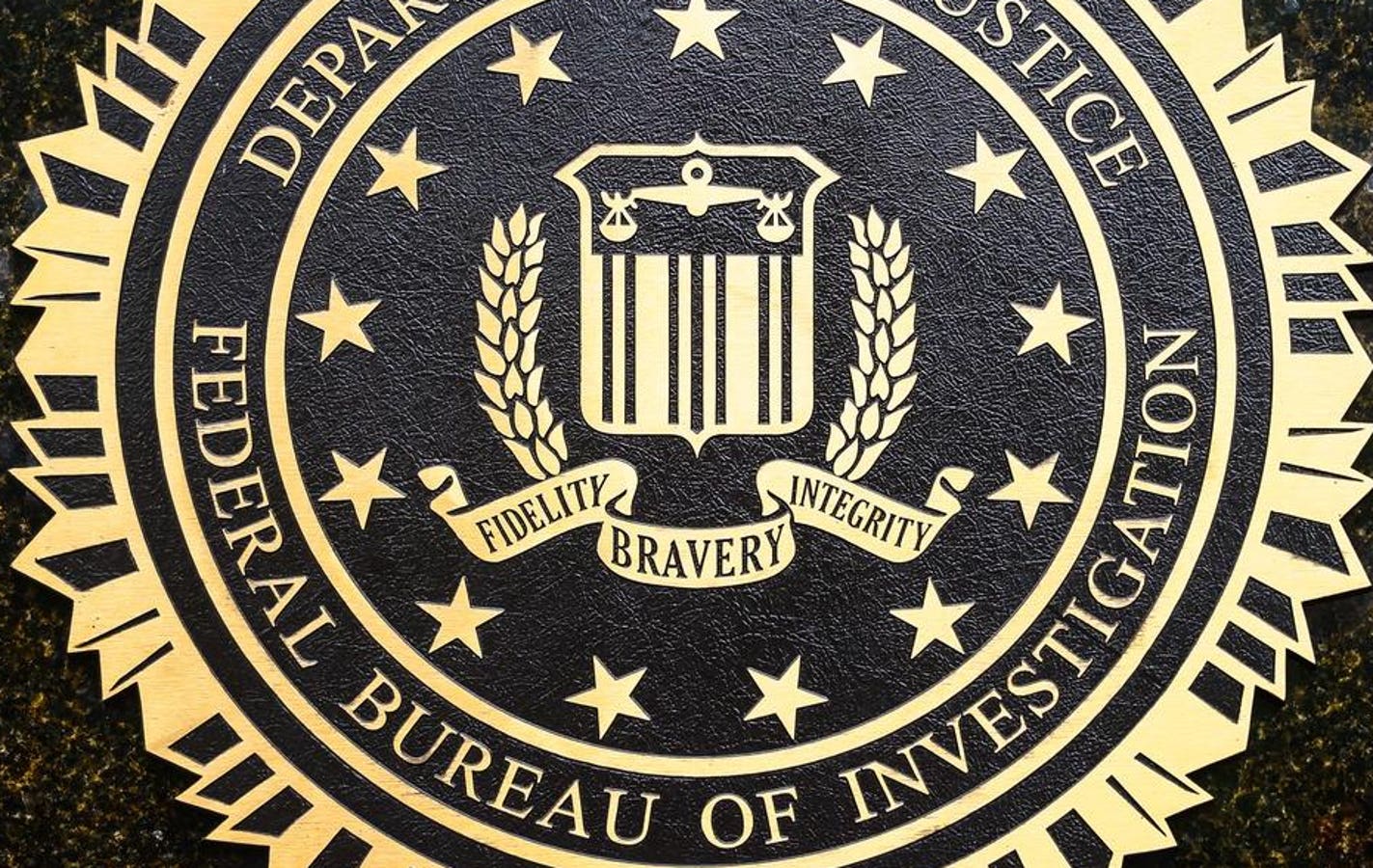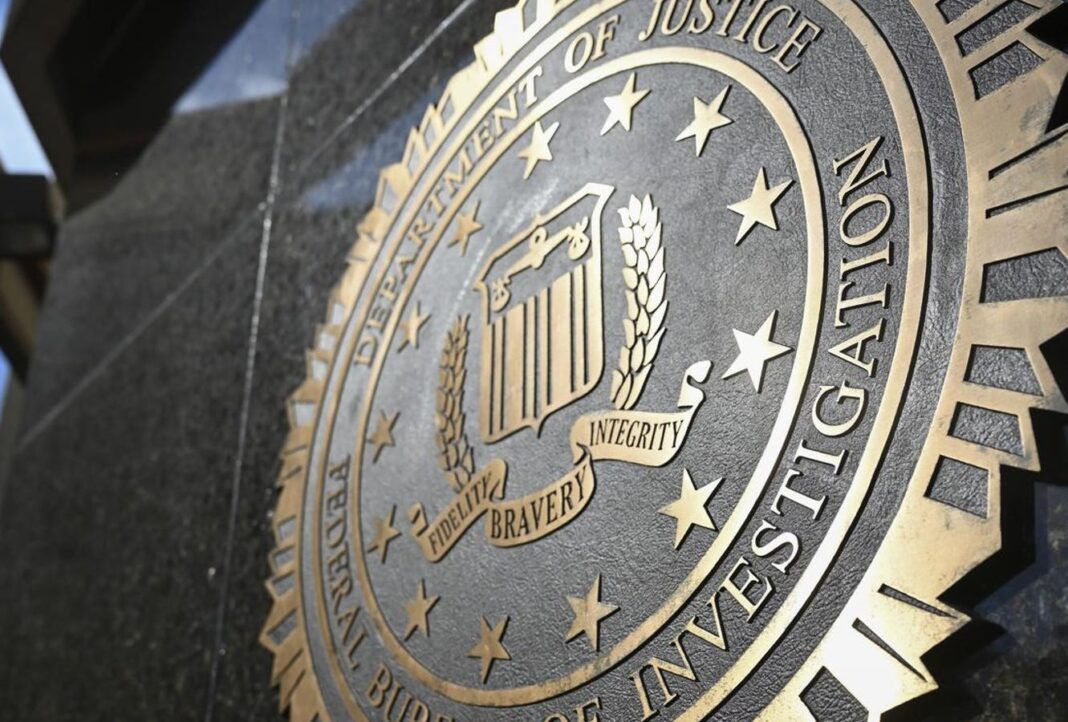Your smartphone buzzes with a notification. It’s a message from an unknown sender, promising something enticing – a free gift, a secret discount, or maybe even a glimpse into the future. It seems harmless enough, right? But what if that seemingly innocent message is actually a wolf in sheep’s clothing, a digital trap designed to steal your identity or unleash malware on your device? Recent warnings from the FBI highlight a growing threat to iPhone and Android users, urging them to be extra cautious about the messages they engage with.

The Shifting Sands of Cybersecurity: Backdoors and the Encryption Debate
The UK Precedent: How Apple’s Concession Defines a New Era

In a move that sent shockwaves through the tech world, Apple recently caved to demands from UK authorities, compromising its previously impenetrable iCloud encryption. This concession, while seemingly isolated to the UK, carries significant implications for the global landscape of cybersecurity and privacy. The ramifications extend far beyond Apple, casting a long shadow over other tech giants like Google and Meta, who are now under increased pressure to follow suit.
The iCloud Compromise: What it Means for User Privacy
Apple’s decision to grant UK law enforcement backdoor access to iCloud data represents a fundamental shift in the balance between security and privacy. While the company maintains that encryption remains in place, the ability for authorities to bypass these safeguards, even with a court order, sets a dangerous precedent. This undermines the very principles upon which end-to-end encryption was built, eroding trust in the security of digital communications.
The implications for other tech giants are equally profound. Google and Meta, both major players in the messaging and cloud services space, are now facing mounting pressure from governments worldwide to implement similar “lawful access” measures. This could lead to a domino effect, with tech companies across the globe forced to compromise their encryption protocols, ultimately leaving users more vulnerable to surveillance and data breaches.

The Global Reach: Setting a Dangerous Precedent for Law Enforcement Access
The UK’s actions have far-reaching consequences, setting a dangerous precedent for law enforcement agencies around the world. Countries with less stringent privacy laws may be emboldened to adopt similar measures, further eroding the sanctity of online communications. This creates a global environment where privacy is increasingly under threat, with governments wielding greater power to access personal data without adequate safeguards.
The FBI’s “Responsible Encryption” Stance: A Delicate Balance Between Security and Privacy
Defining “Responsible”: The Gray Areas of Lawful Access
The FBI, amidst growing concerns over encryption and its impact on law enforcement investigations, has taken a stance advocating for “responsible encryption.” This seemingly innocuous term, however, masks a complex and contentious debate about the balance between security and privacy. The FBI argues that while strong encryption is essential, it should not be a barrier to obtaining critical evidence in criminal investigations.
The difficulty lies in defining what constitutes “responsible” encryption. This ambiguity opens the door to potential abuse, with law enforcement agencies potentially leveraging this justification to circumvent encryption protocols and access data without proper oversight or judicial review. The lack of clear guidelines creates a dangerous gray area, where the lines between legitimate law enforcement access and unwarranted intrusion blur.
The Threat Landscape: Terrorism, Child Exploitation, and the Need for Intel
The FBI emphasizes the need for lawful access to encrypted communications in the context of combating serious threats, such as terrorism and child exploitation. They argue that encrypted platforms provide a safe haven for criminals to communicate and operate with impunity. Without the ability to access this information, investigators face significant challenges in gathering evidence and disrupting these activities.
However, critics argue that this justification overlooks the potential for abuse and the chilling effect on free speech. They point to instances where law enforcement agencies have misused access to sensitive data, raising concerns about the potential for government overreach and the erosion of privacy rights.
The American Perspective: Will the US Follow the UK’s Path?
While the US has yet to adopt the UK’s approach to encryption, the FBI’s recent calls for “responsible encryption” and the growing pressure from lawmakers suggest a potential shift in policy. The UK’s move serves as a stark warning, highlighting the growing divide between the tech industry and governments over the issue of encryption. The US, facing similar challenges in combating cybercrime and terrorism, may be forced to confront these difficult questions and ultimately choose a side.
Protecting Yourself in an Age of Data Vulnerabilities
The Chinese Cyber Threat: A Wake-Up Call for Cybersecurity
The recent revelations about the Salt Typhoon campaign, a sophisticated cyber espionage operation attributed to China, have underscored the growing threat posed by state-sponsored actors. This campaign, targeting critical infrastructure and telecom networks, serves as a stark reminder of the vulnerabilities inherent in our digital world. The scale and sophistication of these attacks highlight the urgent need for individuals and organizations to bolster their cybersecurity defenses.
FBI Hacking Warning—Change 2 Settings On Your iPhone
In the wake of the Salt Typhoon revelations, the FBI issued a warning to US citizens, urging them to enhance their cybersecurity practices. They emphasized the importance of using strong passwords, enabling multi-factor authentication, and keeping devices updated with the latest security patches. The FBI also recommended using encrypted messaging apps and phone calls to protect communications from interception.
The FBI’s warning underscores the need for a proactive approach to cybersecurity. Citizens must take personal responsibility for protecting their data and devices from evolving threats.
The Naked Truth About SMS and RCS: The Risks of Unencrypted Communication
Recent warnings from the FBI and CISA have highlighted the vulnerability of everyday messaging, particularly when exploiting the SS7 protocol. This has led to a renewed focus on secure communication practices and the importance of encryption in protecting user data.
The Vulnerability of Everyday Messaging: Exploiting SS7
The SS7 protocol, which allows for the routing of mobile phone calls and text messages, is a decades-old technology that has been largely unsecured. This has made it vulnerable to exploitation by hackers and law enforcement agencies alike, who can intercept and read messages without the user’s knowledge or consent.
According to Jake Moore, a cybersecurity expert at ESET, “SMS messages are not encrypted and any non-encrypted forms of communication can be surveilled by law enforcement or anyone with the right tools, knowledge, and software due to the concept of SS7.”
The risks associated with unencrypted messaging are particularly significant in the context of the Salt Typhoon attacks, which have compromised the networks of multiple telecom companies and stolen sensitive information.
The FBI’s Warning: Shifting Focus to Secure Communication Practices
The FBI’s warning to use responsibly encrypted messaging and phone calls where possible is a significant shift in focus for the agency. As a senior FBI official noted, “within the investigative activity, especially one this significant and this large, the facts will evolve over time… The continued investigation into the PRC targeting commercial telecom infrastructure has revealed a broad and significant cyber espionage campaign.”
The FBI’s emphasis on responsible encryption highlights the need for users to take control of their communication security. As Jeff Greene, a spokesperson for CISA, emphasized, “strongly urging Americans to ‘use your encrypted communications where you have it… we definitely need to do that, kind of look at what it means long-term, how we secure our networks’.”
Practical Steps for Users: Encryption, MFA, and Staying Vigilant
So, what can users do to protect themselves from the risks of unencrypted messaging? The first step is to use end-to-end encrypted messaging platforms, such as Signal or WhatsApp, which provide a secure and private way to communicate.
Additionally, users should enable multi-factor authentication (MFA) on their devices and accounts, which adds an extra layer of security and makes it more difficult for hackers to gain access to sensitive information.
Finally, users should stay vigilant and be aware of the risks associated with unencrypted messaging. By taking these practical steps, users can protect themselves from the risks of unencrypted communication and maintain their online security.
Beyond Text Messages: The Salt Typhoon Hack and the Broader Context
The Salt Typhoon hack has highlighted the broader risks associated with the compromise of critical infrastructure and the security of networks. This has led to a renewed focus on strengthening defenses and holding actors accountable for their actions.
The Scope of the Breach: Targeting Telecom Infrastructure and Critical Data
The Salt Typhoon hack has compromised the networks of multiple telecom companies, stealing sensitive information and compromising the security of critical infrastructure. As a senior FBI official noted, “the actors compromised private communications of a limited number of individuals who are primarily involved in the government or political activities. This would have contained call and text contents.”
The scale of the breach is significant, with widespread call and text metadata stolen in the attack. This has raised concerns about the security of critical infrastructure and the potential for future attacks.
The Stakes: National Security, Political Influence, and Economic Impact
The Salt Typhoon hack has significant implications for national security, political influence, and economic impact. As a spokesperson for CISA noted, “the continued investigation into the PRC targeting commercial telecom infrastructure has revealed a broad and significant cyber espionage campaign.”
The hack has compromised sensitive information, potentially compromising national security and giving the attackers significant leverage over key individuals and organizations.
The Need for Action: Strengthening Defenses and Holding Actors Accountable
The Salt Typhoon hack highlights the need for action to strengthen defenses and hold actors accountable for their actions. As a senior FBI official noted, “the FBI and our partners often can’t obtain digital evidence, which makes it even harder for us to stop the bad guys.”
The hack has demonstrated the significant risks associated with the compromise of critical infrastructure and the security of networks. By taking action to strengthen defenses and hold actors accountable, we can reduce the risk of future attacks and protect sensitive information.
The FBI and CISA’s Warning: A Shift in Focus
The FBI and CISA’s warning to use responsibly encrypted messaging and phone calls where possible marks a significant shift in focus for the agencies. As a senior FBI official noted, “within the investigative activity, especially one this significant and this large, the facts will evolve over time… The continued investigation into the PRC targeting commercial telecom infrastructure has revealed a broad and significant cyber espionage campaign.”
The warning emphasizes the need for users to take control of their communication security and use end-to-end encrypted messaging platforms, such as Signal or WhatsApp, which provide a secure and private way to communicate.
What Does This Mean for Users?
For users, this means taking a more proactive approach to communication security. As Jeff Greene, a spokesperson for CISA, emphasized, “strongly urging Americans to ‘use your encrypted communications where you have it… we definitely need to do that, kind of look at what it means long-term, how we secure our networks’.”
Users should enable multi-factor authentication (MFA) on their devices and accounts, which adds an extra layer of security and makes it more difficult for hackers to gain access to sensitive information.
Finally, users should stay vigilant and be aware of the risks associated with unencrypted messaging. By taking these practical steps, users can protect themselves from the risks of unencrypted communication and maintain their online security.
Conclusion
In conclusion, the FBI’s urgent warning to iPhone and Android users from replying to specific messages serves as a stark reminder of the ever-evolving threat landscape of cybercrime. As we’ve discussed, the alarming rise of smishing attacks, where fraudsters disguise themselves as trusted entities, has the potential to compromise sensitive personal and financial information. It’s imperative for individuals to remain vigilant and take proactive measures to safeguard their digital lives.
The significance of this warning extends beyond individual security; it highlights the need for a collective effort to combat the growing menace of cybercrime. As our reliance on digital platforms continues to grow, so must our awareness and preparedness to counter these threats. It’s essential that tech companies, law enforcement agencies, and governments collaborate to share intelligence, develop innovative solutions, and educate the public on the risks associated with smishing attacks.
Ultimately, the responsibility falls on each individual to prioritize our digital security. The next time you receive a suspicious message, remember that the consequences of a careless reply can be devastating. Will you be the one to protect yourself from the clutches of cybercriminals, or will you become the next victim of a smishing attack? The fate of your digital identity hangs in the balance – make the right choice, and safeguard your future.
